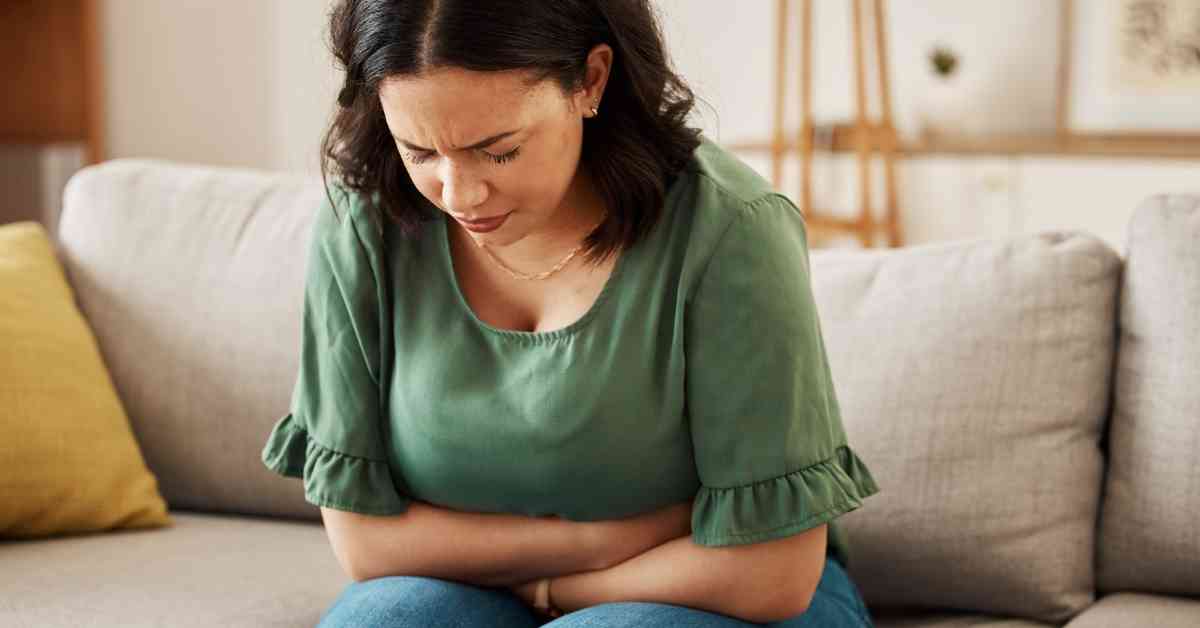Every time after emptying your bowels, have you ever experienced severe stomach distention that still lingers uncomfortably? You are not alone. Many people suffer from persistent bloating after pooping which is both annoying and uncomfortable. This write-up identifies some of the possible reasons for this problem and offer suggestions on how to find relief.
Causes of Persistent Bloating After Bowel Movements:
Also Read: Shortness of breath could be due to anxiety, here is how to tell.
Digestive Issues
Irritable Bowel Syndrome (IBS)
One of the major causes of persistent bloating after pooping is Irritable Bowel Syndrome (IBS). It is a chronic condition affecting the large intestine and manifesting with various symptoms including abdominal pain, bloating, diarrhea, or constipation.
If you have IBS, there might be certain foods that your digestive system cannot handle well or it might not be good at moving waste through your intestines as required. Therefore, even after emptying your bowels existing gas may lead to bloating.
Food Intolerances
Another cause of persistent bloating problems after pooping include food intolerances. Sometimes when it comes to digesting some particular foods like lactose found in dairy products or gluten in wheat, rye and barley our bodies faces challenges leading to gas build up and bloating.
Some common food intolerances that may cause bloating include:
- Lactose intolerance
- Gluten intolerance or sensitivity
- Fructose intolerance
- Intolerance to certain artificial sweeteners or preservatives
Intestinal Gas
Gas-Producing Foods
Certain foods are notorious for producing more gas than others, which can lead to bloating and discomfort, even after you’ve had a bowel movement. These gas-producing foods include:
- Beans and legumes
- Cruciferous vegetables (broccoli, cabbage, cauliflower)
- Carbonated beverages
- Dairy products (if you’re lactose intolerant)
- Whole grains and high-fiber foods
- Artificial sweeteners like sorbitol and xylitol
Swallowing Air
Sometimes, the culprit behind persistent bloating after pooping is simply swallowing too much air. This can happen due to various habits, such as:
- Eating or drinking too quickly
- Chewing gum or sucking on hard candies
- Drinking through a straw
- Smoking
When you swallow air, it can get trapped in your digestive system, leading to bloating and discomfort.
Constipation
Causes of Constipation
Constipation can be a significant contributor to persistent bloating after pooping. When you’re constipated, waste material can accumulate in your intestines, leading to gas buildup and bloating.
Some common causes of constipation include:
- Low fiber intake
- Dehydration
- Lack of physical activity
- Certain medications (such as opioid painkillers or antidepressants)
- Ignoring the urge to have a bowel movement
Impact on Bloating
When you are constipated, the waste material may ferment within your intestines generating gas and causing bloating. Some gas and bloating may still remain even after you eventually get relieved from a bowel movement thereby leading to constant discomfort.
Underlying Medical Conditions

Inflammatory Bowel Diseases (IBD)
There are several medical conditions that can also result in continuous bloating after defecation. One such condition is Inflammatory Bowel Disease (IBD) which encompasses Crohn’s disease and ulcerative colitis.
IBD causes lasting irritation of the digestive system, leading to different symptoms including pain in the belly, diarrhea and bloating. Even after passing stool, this underlying inflammation can result in discomfort as well as bloating.
Other Conditions
Other medical conditions that may contribute to persistent bloating after pooping include:
- Small Intestinal Bacterial Overgrowth (SIBO)
- Gastroparesis (delayed stomach emptying)
- Celiac disease
- Pancreatic insufficiency
If you suspect an underlying medical condition might be causing your persistent bloating, it’s essential to consult with a healthcare professional for proper diagnosis and treatment.
Remedies and Tips
Dietary Changes
Making some dietary changes can help alleviate persistent bloating after pooping. Here are some tips:
- Avoid foods that produce gas: Lower your intake of beans, cruciferous vegetables, carbonated drinks, and artificial sweeteners.
- Gradually increase fiber intake: While fiber is important for digestion health, introducing too much at once can cause abdominal flatus. Enhance fiber consumption gradually by including more fruits, vegetables as well as whole grains into your daily meals.
- Stay hydrated: Drink lots of water to enable efficient wastage movement through your gut.
- Try low FODMAP diet: For individuals having IBS or food intolerances; a low FODMAP diet can be used to reduce flatulence (Mitchell et al., 2015).
Lifestyle Modifications
In addition to dietary changes, incorporating some lifestyle modifications can also help alleviate persistent bloating after pooping:
- Exercise regularly: Physical activity can help stimulate bowel movements and reduce constipation.
- Practice stress management techniques: Stress can exacerbate digestive issues, so try relaxation techniques like yoga, meditation, or deep breathing exercises.
- Avoid swallowing air: Be mindful of habits that can lead to excessive air swallowing, such as eating too quickly or chewing gum.
Over-the-Counter Remedies
If dietary and lifestyle changes don’t provide sufficient relief, you may want to try some over-the-counter remedies:
- Gas relief aids: Products containing simethicone (such as Gas-X or Phazyme) can help break up gas bubbles in the digestive system.
- Probiotics: Introducing beneficial bacteria through probiotic supplements or fermented foods like yogurt may help improve digestion and reduce bloating.
- Digestive enzymes: Enzyme supplements can aid in the breakdown of food, potentially reducing gas and bloating.
It’s essential to consult with a healthcare professional before taking any new supplements or medications, as they may interact with existing conditions or medications.
When to See a Doctor
While persistent bloating after pooping can be frustrating, it’s generally not a cause for immediate concern. However, there are certain warning signs that may indicate a more serious underlying condition, in which case you should seek medical attention:
- Severe or persistent abdominal pain
- Unintentional weight loss
- Blood in your stool
- Persistent vomiting
- Fever
If you’ve tried various remedies and lifestyle changes without relief, or if your bloating is accompanied by other concerning symptoms, it’s best to consult with a healthcare professional for a proper evaluation and diagnosis.
Post Note
Various factors such as gas-producing foods, digestive problems, food intolerances, constipation and other medical conditions can lead to prolonged bloating after a bowel movement. Although it can be an uncomfortable and frustrating experience, there are several remedies and lifestyle modifications that may help provide relief.
There are several things you can do to reduce persistent bloating after pooping which include; limiting your intake of gas producing foods, incrementing fiber intake gradually, regular exercise among others.
Moreover, some individuals may get assistance from OTC products like Gas Relief drugs, Probiotics or Digestive Enzymes.
However if the constant swelling is accompanied by severe symptoms or does not go away through self-help measures then medical attention would be needed. A healthcare provider can detect any underlying medical conditions contributing to the bloating as well as treat them.
Remember though that for many people with a proper approach persistent bloating after defecation is a common problem and many of them find relief leading to overall improvement in their digestion comfort.


0 thoughts on “Why Am I Still Bloated After Pooping?”